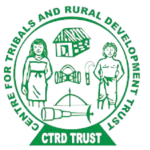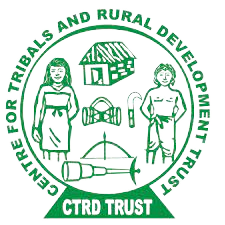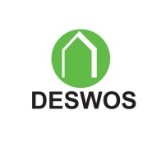CTRD Trust has successfully completed several projects in the areas of health, education, livelihood, housing, environment, and culture. It would like to thank its partners for their collaboration and support in these projects. Zeiss, Sightsavers, Deswos, Raleigh International, and other partners have made valuable contributions and guidance. The organization hopes to continue working with them in the future to achieve its vision of a dignified and prosperous life for the tribal people.
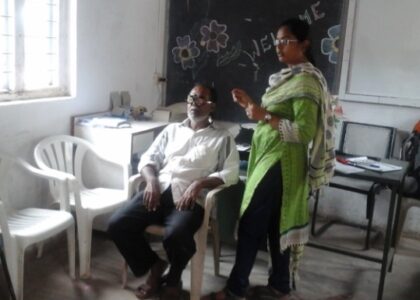
Rural Vision Care Program
From 2017 till … CTRD Collaborated with Carl Zeiss India to provide affordable and accessible vision care in remote areas of the Nilgiri Hills. The program involved awareness raising, screening and dispensing of spectacles in resource poor settings and was based on a social entrepreneurship model, in which five local entrepreneurs were trained by Zeiss to provide screening and sales of spectacles at a low price.Two centers were set up, and additionally a minimum of two camps monthly took place in very remote areas for people, who are not able to visit the screening centers.


Establishing Sanitation in Tribal Villages
To provide proper sanitation facilities in rural areas, CTRD worked together with "Together we are one (T.W.O.)" from 2016 till 2019. In this period, a total of 25 individual toilets in compatibility with the people’s cultural needs were provided. Now the hygienic situation is improved and danger is reduced of being attacked by animals. As many of the tribal villages are located close to remote forest areas, which are home to wild animals, for instance snakes, tigers or elephants, the open defecation is especially dangerous at night.
In cooperation with Together we are One
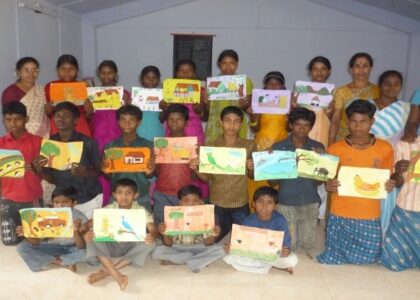
Tribal Children Art Club
To promote the individual self-realization of children, CTRD and the French organization cooperated from … till … to realize the Tribal Children Art Club, where 25 children were empowered to draw paintings in accordance to their community, culture, beliefs or daily concerns. By expressing themselves through art, the children are able to learn more about themselves and to face individual fears and beliefs in an alternative and inspiring way. With the support of its partner organization, CTRD could buy painting materials and hire local painting artists, who teach the children basic painting techniques. The paintings were illustrated in magazines and sold as postcards in Europe.


Tribal Children Education Sponsorship Program
With the Sponsorship program CTRD and … donors from several countries supported … children in their learning process from … till …. With an annual contribution of 250€ the total expenditures for one child per school year are covered. The (sometimes) missing support by their parents, a lack of infrastructure and of financial funds to buy adequate school material is hampering a successful school career of the tribal children. The sponsored children were equipped with all essential school-related items, like bus tickets, school uniforms or books. Girls were given prior preference as they have to face enormous gender-related discrimination. To ensure the sustainability of the project the children must show a performance improvement in order to continue the sponsorship. Donors are able to communicate with the individual students through E-Mail or even directly by visiting the project sites.
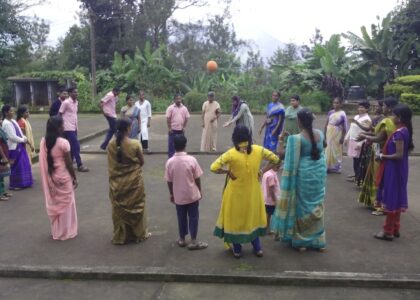
The Social Inclusion Project
In order to promote social inclusion, CTRD and Sightsavers set up a number of Disabled Peoples Organizations (DPOs) for the different disabilities in 2016. These targeted Self Help Groups were made up of a team with the same disabilities and were partially complemented by family members and experts to assist them with particular issues. These Self Help Groups aimed to provide the participants a space for mutual exchange, to share their experiences and to strengthen each other. Further, the project included self-help activities. Another goal was to eliminate middlemen in the process of providing helping tools through public schemes.

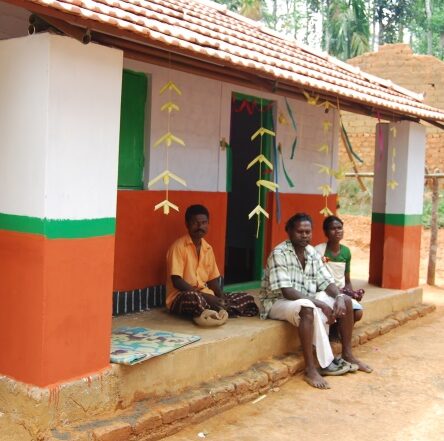
Rural Housing and Livelihood Program
From 2009 until 2012, CTRD has been cooperating with DESWOS Germany to enable the construction of over 150 houses in nine tribal villages. This project did not only ensure the comfort and safety of the Adivasi - it has been empowering the people to help themselves. Socio-economic conditions have been greatly improving in both villages and the wider area thanks to IGPs (Income Generation Programs), ensuring that rural and tribal families can make a meaningful and sustainable contribution to the development of their own communities. By providing support to 61 tribal communities, healthcare and education have also been enhancing tremendouslyin these regions.
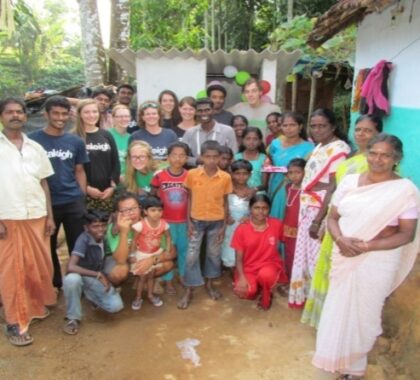
Raleigh International UK Projects
In 2009 CTRD has been collaborating with Raleigh India (Part of Raleigh International) in order to realize housing as well as sanitation projects in the Nilgiri Region. Hereby four tribal villages have been directly supported. Firstly in the Kappikadu village fourteen secure and weather-proof houses have been built, in place of the old huts, for the sixty-four residents who belong to the Kattanayakan tribe. Secondly in the Muttilmoola village seven secure and weather-proof houses have been built, in place of the old huts, for the twenty-nine residents who also belong to the Kattanayakan tribe. Thirdly, twenty toilets facilities have been built in the villages Ealamanna as well as Karathad.

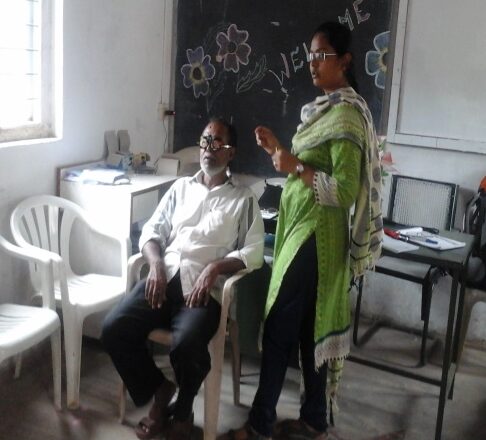
The Strengthening Networks for Eye Health and advocacy (SNEHA) Project
In order to combat the issues of poor eye health, CTRD and Sightsavers have been implementing the Strengthening Networks for Eye Health and advocacy (SNEHA) project which provides comprehensive eye care for local people. From 2005 until 2012 the project implemented eye check up's, eye health awareness programs, educational services and rehabilitation schemes for the visually impaired. Community screening camps are conducted in a number of villages and schools by outreach teams from a number of local eye hospitals. Following these camps, individuals are provided with glasses or referred for further treatment, such as corrective eye surgery. Eye Health Awareness schemes have also been implemented across schools and villages of the district, raising the profile of this issue at a community level and encouraging those with visual difficulties to seek for the appropriate support.

